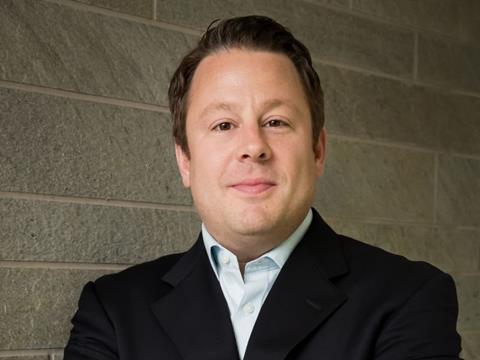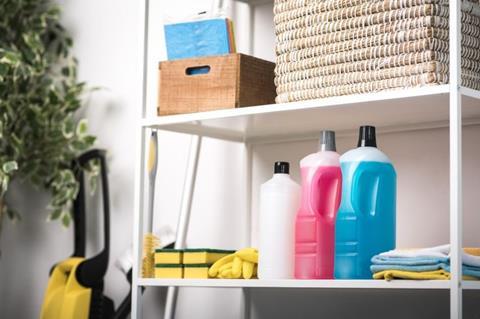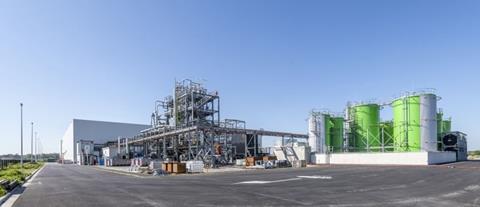
Elisabeth Skoda speaks to Trevor Davis, Head of Marketing Consumer Products at Borealis, to discuss strategies and ways forward to address the most pressing sustainability issues of today.
Polyolefin provider Borealis set itself the ambitious goal to achieve a truly circular economy by combining different technologies in a complementary and cascading way through R&D and collaborations across the value chain. As a recent example, the company announced a partnership with Renasci N.V., a provider recycling solutions who created the novel Smart Chain Processing (SCP) concept. This concept is a proprietary method of maximizing material recovery in order to achieve zero waste and enables the processing of multiple waste streams using different recycling technologies under one roof. Mixed waste – plastics, metals, and biomass – is automatically selected and sorted multiple times. After sorting, plastic waste is first mechanically recycled, and then in a second step any remaining material is chemically recycled into circular pyrolysis oil and lighter product fractions, which are used to fuel the process.
He identifies the core challenge around sustainability as finding solutions that address all aspects of the problem, not just a part of it, but is confident that Borealis is on the right track to helping with finding these solutions.
“I speak daily with brand owners and converters who are passionately working on sustainability. The value chain faces a difficult task to find solutions that tackle both the waste and CO2 challenges at speed and scale. But sustainability and circularity are woven throughout the Borealis strategy. We are simultaneously focused on the sustainability of our own operations as we develop our circular portfolio of products. We are committed to growing our circular portfolio including renewables to address CO2, chemical recycling to address plastic waste, and advanced mechanical recycling which covers both waste and CO2.”
Focus on R&D
Packaging R&D plays a crucial role at Borealis, and the company works hard on ensuring that every solution fulfils strict sustainability criteria.
“Each innovation for the Consumer Products team is reviewed through an intense sustainability analysis as part of our development process. We are also heavily focused on innovating to improve and expand our circular portfolio while offering products globally as we expand into North America and work with Borouge in the Middle East and Asia. Design for recycling is a key innovation pillar with our existing mono-material 100% full polyethylene (PE) and polypropylene (PP) solutions. In short, sustainability is the present and future for Consumer Products as we offer packaging solutions that make everyday life easier.”
In 2020, the company launched five products in the area of the Bornewables™, a portfolio of circular polyolefin products manufactured with renewable feedstocks, described as offering the same material performance as virgin polyolefins while being decoupled from fossil-based feedstock, and also Borcycle™ M for advanced mechanical recycling.
“In 2021, we have even bigger plans for Consumer Products with additional launches in the area of the Bornewables, Borcycle™ C chemical recycling and Borcycle M advanced mechanical recycling,” adds Mr Davis.
Collaborations

Borealis works in collaboration with partners across the value chain to deliver new solutions. A notable example is a prototype food packaging made with 100% recycled raw materials (a Packaging Europe Sustainability Awards finalist), and a new closure made of post-consumer recycled resin in collaboration with Menshen. This came with its own set of challenges, but ultimately yielded valuable insights for the company.
“One challenge we faced when launching products using mechanically recycled and renewable materials was ensuring that we had the right feedstock for our mechanical recycling operations. Brand owners and consumers are not willing to compromise and we are dedicated to reaching the quality demanded. We learned a lot along the way thanks to our Ecoplast and mtm recycling plants, and we are very excited about our operational start of the advanced mechanical recycling demo plant in Lahnstein, Germany – the result of a partnership that combines chemistry with technology for unsurpassed results. The state-of-the-art plant processes both rigid and flexible PE and PP plastic waste from households. Operation of the plant is a joint enterprise between Borealis, TOMRA and Zimmermann.”

Another example of success across the value chain collaboration is Borealis’ EverMindsTM platform. Mr Davis explains some highlights and milestones.
“We created EverMinds™ to show commitment and inspire our partners by designing sustainable solutions for a better future. We have already established a ‘thinking circular’ mind-set by putting EverMinds™ at the forefront of all things circular economy related and we have steered the discussion on circularity. We had big plans for an EverMinds™ Summit that we needed to cancel in 2020, so we took a digital approach to EverMinds™: watch this space as we continue to advance our collaboration. We are proud of the blog where we invite our value chain partners to exchange with us and offer their best practices to advance the circularity in the whole plastics industry. Our goal remains to collaborate across the value chain to reinvent for more sustainable living. Now, the journey continues, and we want to take the next step. EverMinds™ is evolving into a platform that is all about action and accelerating that action in circularity.”
The business case for sustainability
The COVID-19 pandemic disrupted and transformed the industry beyond conference schedules. While the pandemic was at its peak, there was a clear shift in consumers’ perception of packaging, especially plastics packaging, as Mr Davis notes.
“We saw an increase of packaging in light of Covid-19 as consumers were focused on the safety and security that plastic provides. At the same time, consumers are also becoming more aware of their footprint, so at the same time we see an increase in plastic combined with an increased focus on the demand for sustainability.”
In conclusion, there is a lot of talk about the cost of sustainability, but it is important to bear in mind that it has the potential to offer opportunities for business growth through offering transformative innovation meeting the various technical challenges.
“We see significant potential for growth in packaging. The Consumer Products team has embraced the challenge to continue expanding our product offering. We are careful to devote time and attention to transformation, as we are ever mindful to continue pushing big ideas. One key proof point is that we obtained ISCC+ certification across our plants where we produce resin for packaging solutions, to enable mass balance certification as we transform to feedstock from both renewable and chemically recycled sources. High quality recycled material is in strong demand and supply is currently limited. And, if I look from a planet perspective, it makes sense that recycled material carries a premium as it encourages investment that benefits society. We see plastic as a valuable resource that should be reused and recycled. We are also closely monitoring data from NYU Stern Center for Sustainable Business that shows the clear value for the brand owners that embrace sustainability.”













